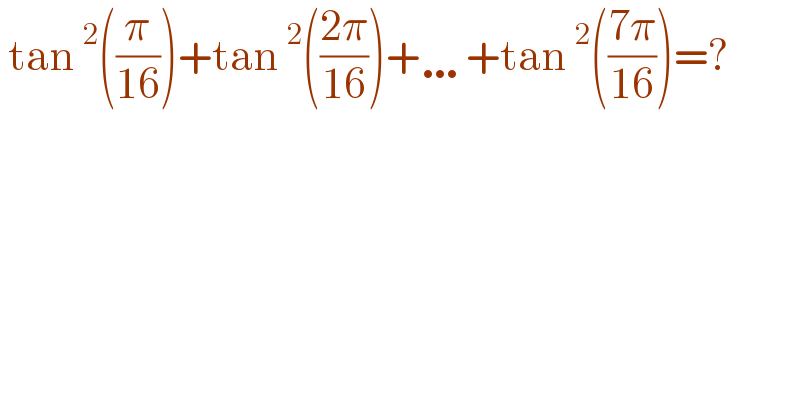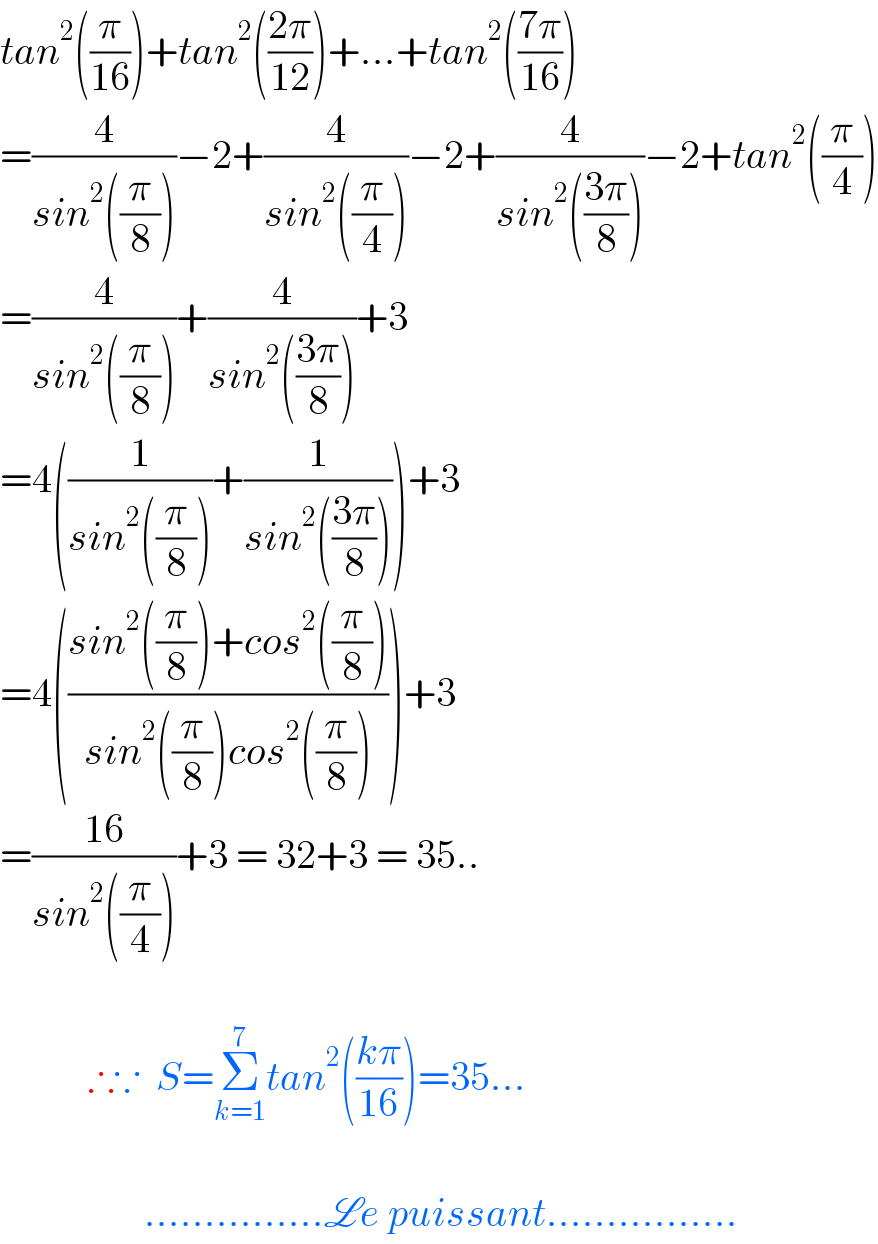Question Number 155466 by cortano last updated on 01/Oct/21

Commented by VIDDD last updated on 01/Oct/21

Commented by VIDDD last updated on 01/Oct/21

Answered by puissant last updated on 01/Oct/21

Commented by VIDDD last updated on 01/Oct/21

Commented by peter frank last updated on 01/Oct/21

Answered by john_santu last updated on 01/Oct/21

